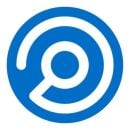Turning a passion into a career is not as simple as waking up one day and declaring, “This is who I am.” It’s a process — sometimes improvised, sometimes laser-focused — but always one that requires ceaseless determination and gumption while climbing that career ladder. So, wouldn’t it make sense that the employer receiving all your laborious efforts should want to elevate your work into a lengthy career?
Well, actually, it does.
When a clear pipeline of career growth isn’t established, employees are likely to turn elsewhere for greener pastures. In fact, the resulting turnover caused by stunted development is costing average-sized companies up to $49 million per year, according to a study by Gartner. That drastic financial loss, combined with the staggering 4.4 million people leaving their roles in September as part of The Great Resignation, should be enough of a red flag for any organization to start investing in internal growth.
Lucky for job seekers, not every company currently needs that wake up call. That’s why Built In Seattle sat down with seasoned tech experts who have felt nothing but support from their companies since day one. We dug deeper into their experiences to learn about the most useful skills they’ve acquired throughout their journeys and the best advice for anyone looking to forge their career path forward in one place.
What role were first hired for in your company?
Initially, I started as a senior software engineer on the back-end team here at Mothership. One of my first tasks was to collaborate with one of our front-end engineers to improve the shipment cancellation process for our customers. Typescript is our primary language, and I’d never worked with it before. I was consequently a bit intimidated by the work, but thanks to the support and guidance of my colleagues I was able to knock out the task while learning a lot along the way.
What role are you in now?
After about a year and a half with Mothership, I’m now the customer team’s engineering manager. Shortly after I joined the team, the engineering organization decided to break from the front-end and back-end setup that had worked well for a smaller startup and move toward a more product-driven structure to better serve our rapidly growing company. When the customer team was formed, so was the need for a team lead.
We’re now eight members strong, managing the customer dashboard and its dependent services while collaborating with stakeholders company-wide to build features to delight our customers. I continue to make time to learn when I can, usually through work on front-end tasks and, as always, with a ton of support from my team.
Lately, I’ve been working on our Multiple Shipments product: a brand-new way for our customers to bulk-process purchases through our dashboard. It has also served as a fantastic opportunity for every team member to practice ownership, cross-team collaboration and working outside of their technical comfort zones.
Thanks to the support and guidance of my colleagues, I was able to knock out the task while learning a lot along the way.”
How has your company supported your career growth throughout this journey?
My previous role had been as an engineering manager, and I knew that after giving myself some time to re-focus on technical growth at Mothership as an independent contributor, I wanted to pivot back to management.
I spoke with our company’s CTO about how I wanted to grow my career and what it would look like to take that next step. He worked with Mothership’s talent team to put together a multi-page document on specific growth areas. They gave past examples to illustrate what could have gone better, highlighted management areas that needed more of my attention and created a proposed timeline for progress. It made expectations very clear and actionable and wasn’t nearly as intimidating as it sounds — I promise! We had regular check-ins to stay aligned on performance and ensure I was getting direct and continuous feedback. At the end of the original timeline, I earned the promotion to manager.
I continue to work with our CTO on my career growth and what’s next in my career. I’d also be remiss not to mention all the incredible daily support and feedback I get from my peers, my PM and my kick-ass team. I’m excited to see where we can go together next.
What role were first hired for in your company?
I got lucky! I started as an intern in our account development organization during my senior year of college, and then started full time a few days after graduation. We were still very much in our early days during my internship, so while I spent time learning the skills for the account development rep role like prospecting and how to use Salesforce, I was also doing industry and target persona research that we’d use to inform our go-to-market approach.
It was pretty scrappy but super immersive.
What role are you in now?
I’m currently a revenue operations manager serving our enablement team. Think sales ops, but instead of serving sales I serve enablement.
After doing account development work for a year and some change, I went on to be the first individual contributor on the enablement team when it was being first codified. In that role I was responsible for building out the enablement program for our sales team which included onboarding all new sales hires, and I started to formalize how we approached each aspect of our sales process. This also included juggling and formalizing Deal Desk and operationalizing our contract intake and review process.
From there, I dedicated about a year to building out our product internally, and led a lot of the development of our demo environment — “the world’s first interaction with Highspot.” After that, I gravitated towards Ops.
The notion of a linear career path is a myth for most.”
What is the most important skill you’ve acquired on the job?
One of the most important skills I learned early in my career is the ability to forgive myself for thinking I should have a linear career path. I’ve seen a lot of people feel stuck thinking that even though they’re not a great match for their career’s current path, that they need to tough it out.
It’s extremely important that you’re committed to doing well in whatever role you signed up for, but in a way you’re also wasting time, opportunity and fulfillment by not playing to your strengths.
My managers at Highspot have been incredible at helping me get to the next level, even if it hasn’t been within their teams and in a totally different department. I’ve been on three separate teams and have done more than five roles, each bringing me closer to my natural strengths.
The notion of a linear career path is a myth for most, and I’ve found a surprising amount of value in bringing seemingly unrelated knowledge to a new role. You’re able to draw really meaningful insights and provide a unique perspective that might otherwise be missing from your team. More often than not it’s the tangential experience that helps you innovate.
I’m grateful to my people at Highspot for wanting to develop me as a person.
What role were first hired for in your company?
When I joined vcita in 2018, I was hired on as a product support specialist. My day-to-day consisted of answering support tickets through ZenDesk, taking inbound and making outbound calls, and answering live chats. A lot of the requests coming through were just small businesses not sure how to use the software with their unique workflows. Once we discussed their vision, it was a treat to walk a business through the feature in question and watch their success grow.
I also created detailed bug reports, shared business feature requests, supported our strategic partners and worked with product managers on upcoming features.
I feel like I can always express whatever idea I have had in my head and our management has encouraged it.”
What role are you in now?
I am now a technical account manager for the support team. The journey here has been an empowering, challenging experience that has taught me patience and to think outside the box when supporting not just our clients, but everyone in our company.
The coolest project I am working on right now is creating a more interactive internal knowledge base for our team within Confluence. I recognized that there are a few different learning styles and I want to incorporate these while we educate our team through successful processes and cross-team collaboration.
How has your company supported your career growth throughout this journey?
Since I started with vcita, I feel like I can always express whatever idea I have had in my head and our management has encouraged it. One example is my current role: We’ve never really had someone in our office that you can go to inquire about learning a specific feature or rely on someone to update current internal processes. To be given the opportunity to build that role while I support our businesses has been really inspiring.
vcita has also supported my continuous development and growth. They were happy to cover a UX design course, which is instrumental in my ability to get deeper into product and UX design — my dream job — while already applying the knowledge from the coursework into how I tackle my current projects. A win-win for everyone!










